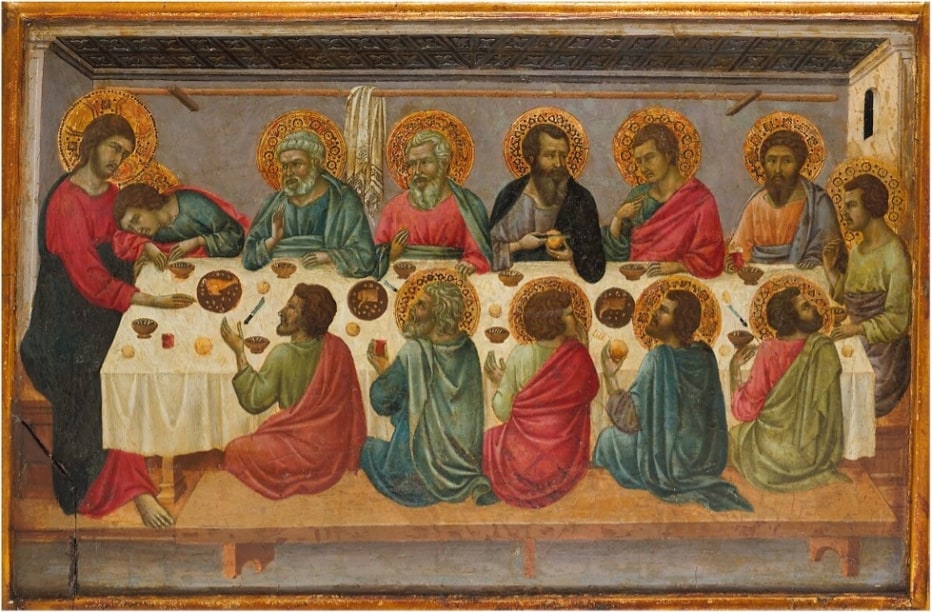
Sermons
All of You
April 6, 2023
“All of you.” They’re all gathered for the Passover meal. They’re all there. The twelve. While they were eating, he said, “One of you will betray me.” “Sure, not I, Lord?” they each replied. Not I? Not I? Not I? Even Judas said, “Surely not I, Rabbi?” “If you say so,” Jesus says.
I never realized until this week that in Matthew’s Gospel, Jesus announces to the disciples that one of them will betray him before he gives them bread and wine and reframes it with new meaning. Mark’s Gospel follows the same order. The order is reversed in Luke’s Gospel. In Luke, first, we hear the words of institution that we use today in the Lord’s Supper, then the announcement about the betrayal.
Perhaps it doesn’t make any difference. The point is: someone will betray Jesus. But the order of events makes a difference theologically, that is, how we understand Jesus and the nature of God. Jesus knows Judas will betray him—and yet, Judas is still welcomed at the table. Jesus knows that once the shepherd is struck, the sheep of the flock will scatter (Mt. 26:31). He knows that Peter will deny him not once but three times that evening. He knows he will be all alone, abandoned, and even killed, indirectly, murdered by his friends. Jesus knows who’s at table with him.
Nevertheless, Jesus takes a loaf of bread, blesses it, breaks it, and gives it to the disciples. Do you see this loaf of bread? Did you see what I just did to it? I took it and blessed it and broke it and now give it to you. Take, eat. This is me; this is my body blessed and broken for you. This is what I have done for you, what I’m about to do for you. And then he takes a cup filled with wine, and blesses it and then gives it to them, “Drink from it, all of you; for this is my blood of the covenant, which is poured out for the forgiveness of sins.”
For you. For all of you. The cup of forgiveness. Not for some, but for all. For all of you, yes, including Judas. Even though I know you will betray me and deny me and run from me. Yes, all that’s true. Nevertheless—I am about forgiveness, mercy, grace. Grace is God’s nevertheless. The tragedy for Judas is that he didn’t believe he was worthy of such grace.
Forgiveness doesn’t mean much if we run from our own brokenness and sin, fail to acknowledge our complicity, and maybe face our own inner Judas. [1] At the table, there’s no place to hide. We can try to find shelter in denial. Surely, not I, Lord? But there’s nowhere to hide. “This is my blood.” Yes, poured out by him for us, we say, but Judas and the disciples had a hand in that shedding. His friends betrayed him, and we have betrayed him and will betray him again and again, within our hearts, in our actions and inactions, running from God’s light and love and goodness, and sometimes doing great harm to ourselves, our neighbors, and severing the primary relationship that gives us life. Yes, of course, Jesus knew and knows all of this. He knows what the human heart can do. And that’s why he extends again and again and again what we need most for our hearts to heal and be made whole. Jesus loves. Jesus understands. Jesus forgives. And he gives us the opportunity to begin again.

Image: Ugolino da Siena (1280-1349), The Last Supper (c.1325-30)
Sources
[1] Fritz Kunkel, Creation Continues: A Psychological Interpretation of the Gospel of Matthew (Paulist Press, 1987), 258.